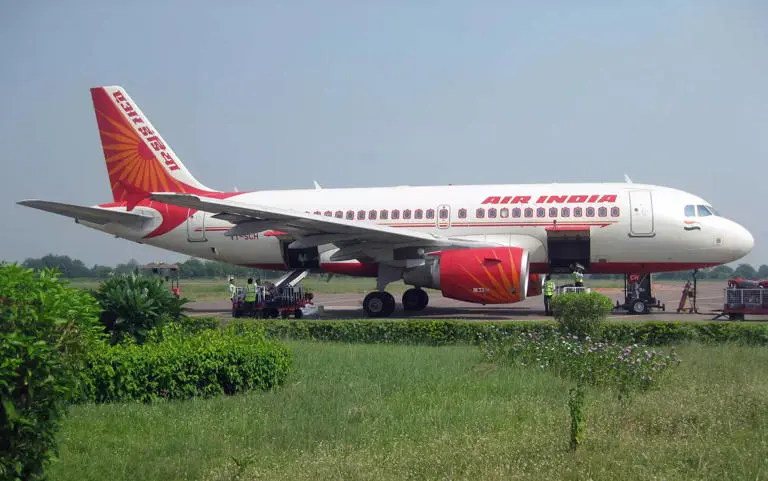
Air India suspends all flights over the Gulf region following Iran’s missile attack on the US Al Udeid Air Base in Qatar.
Aviation Shockwave: Air India Halts Gulf Operations After Iran’s Strike
Air India Grounds Gulf Operations – In a dramatic escalation of Middle East tensions, Air India has suspended all flights over the Gulf region following Iran’s missile attack on the US Al Udeid Air Base in Doha, Qatar. The airline also ceased operations to and from the East Coast of North America and Europe, citing safety concerns and airspace restrictions.
The decision came hours after Iran’s military announced a “devastating and powerful” strike on the US base, calling it a response to recent American airstrikes on Iranian nuclear facilities. Explosions were reported across Doha, prompting Qatar and neighboring countries like Kuwait and Bahrain to close their airspace indefinitely.
Air India, in a statement, confirmed that all India-bound flights from North America are being diverted back to their origin airports or rerouted away from the conflict zone. “The safety and security of our passengers and staff remain our number one priority,” the airline said, adding that it is in continuous consultation with external security advisors.
Ripple Effects: Global Travel Disrupted, Airlines Scramble
The suspension has triggered a domino effect across international aviation. Air India Express diverted its Doha-bound flight from Kochi to Muscat and returned another flight scheduled from Kannur. The airline operates 25 weekly flights to Doha, with direct services from cities like Kozhikode, Mangaluru, and Thiruvananthapuram. All have now been grounded or rerouted.
Other global carriers have followed suit, either canceling or diverting flights that typically traverse the Gulf corridor. The region is a critical airspace for long-haul routes between Asia, Europe, and North America. With multiple nations closing their skies, airlines are scrambling to find alternative paths, leading to longer flight times, increased fuel costs, and logistical chaos.
Passengers have been left stranded or forced to rebook, with many expressing frustration over the lack of clarity and sudden cancellations. Travel agencies and airport authorities are working overtime to manage the fallout, while embassies have issued advisories urging citizens to avoid non-essential travel through the region.
Geopolitical Fallout: A Fragile Region on Edge
The missile strike on Al Udeid, the largest US military base in the Middle East—marks a dangerous turning point in the Iran-Israel conflict, which erupted after Israel’s surprise attack on June 13. The US, now directly involved, had earlier targeted Iranian nuclear sites in Fordow, Natanz, and Isfahan. Iran’s retaliation has not only escalated military tensions but also disrupted civilian life and global commerce.
Qatar has condemned the attack and asserted its right to respond under international law. Meanwhile, the White House and Pentagon are closely monitoring the situation, with heightened alerts across US military installations in the region.
For India, the crisis poses a dual challenge: ensuring the safety of its citizens abroad and managing the economic impact of disrupted air routes. The Gulf region is home to millions of Indian expatriates and serves as a vital corridor for trade and travel.
As the situation evolves, Air India has assured passengers that it will provide timely updates and alternative arrangements where possible. However, with no clear end in sight to the hostilities, the skies over the Gulf remain a no-fly zone, for now.
Stay updated with the latest news on Rapido Updates. Keep yourself updated with The World, India News, Entertainment, Market, Automobile, Gadgets, Sports, and many more